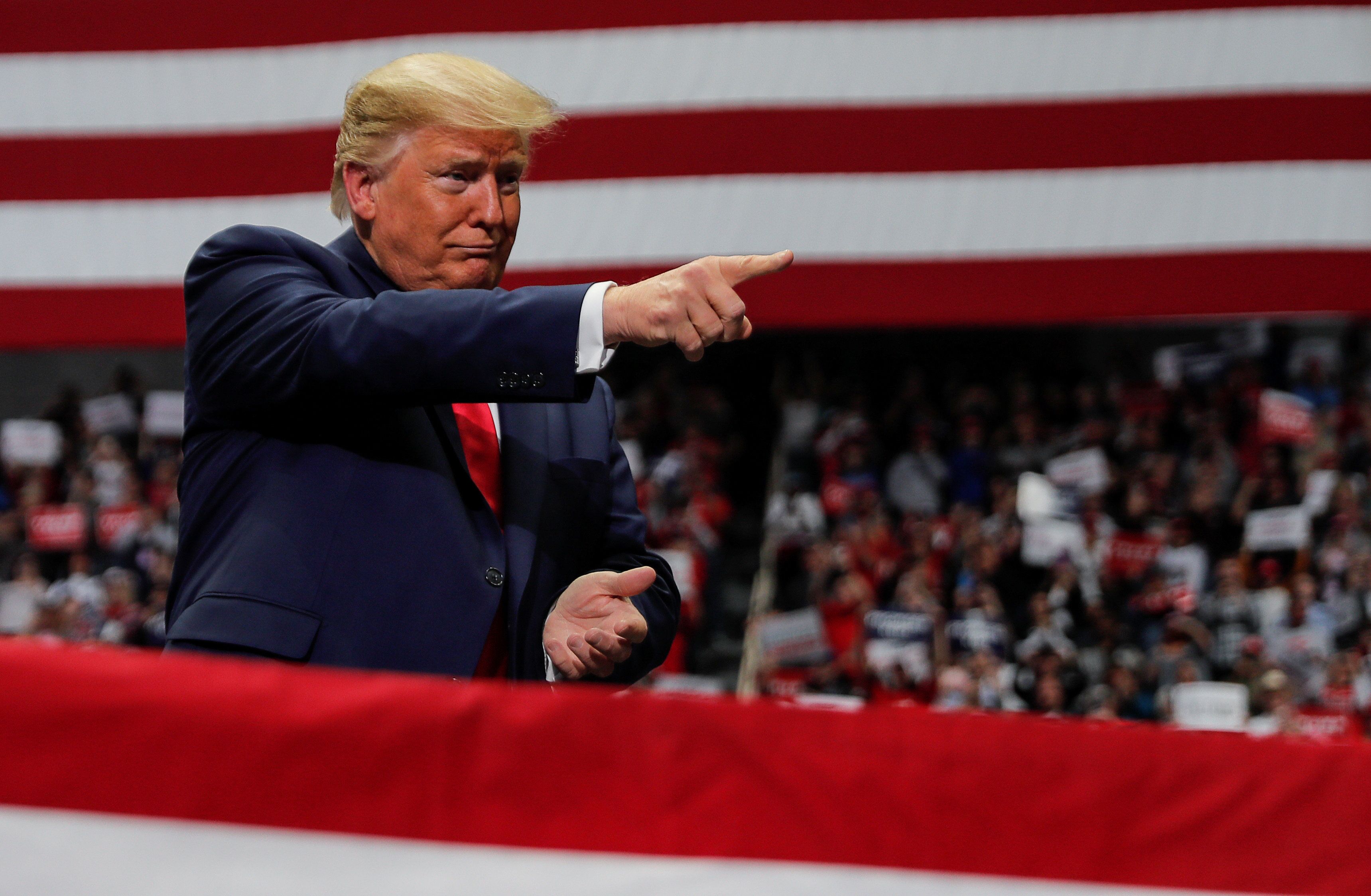September 29, 2020
Donald Trump's presidency has irked a lot of people around the world. And in fairness, that's no surprise. He was elected in part to blow up long-standing assumptions about how international politics, trade, and diplomatic relations are supposed to work.
But while he has correctly identified some big challenges — adapting NATO to the 21st century, managing a more assertive China, or ending America's endless wars in Afghanistan and Iraq — his impulsive style, along with his restrictions on trade and immigration, have alienated many world leaders. Global polls show that favorable views of the US have plummeted to all-time lows in many countries, particularly among traditional American allies in Europe.
And yet, there are many world leaders who have gotten a lot out of his presidency — in ideological support or specific policies — and who won't be happy if he loses in November. Let's visit some of Trump's highest-profile fans.
Brazil. In 2018, an obscure, far-right lawmaker named Jair Bolsonaro swept to power with a brand of provocative anti-establishment politics so similar to the US president's that he earned the nickname "Trump of the Tropics." What's more, Trump's disdain for environmental regulation has helped Bolsonaro to avoid wider global censure for encouraging Amazon deforestation. But just as Trump's victory helped to legitimize rightwing populism around the globe, says Brazilian commentator Guga Chacra, Trump's loss could hurt Bolsonaro's own re-election bid for 2022.
The illiberal Europeans. Much of Western Europe is fed up with Trump, but the avowedly "illiberal" rightwing nationalist governments in Poland and Hungary are fervent admirers. When Polish President Andrzej Duda was on the verge of losing re-election this summer, he made a beeline for the White House for a photo-op that probably helped him to a narrow win. Hungarian Prime Minister Viktor Orbán, meanwhile, has already openly endorsed Trump for re-election.
Israel. Prime Minister Benjamin Netanyahu has bet big on the Trump administration, and it's paid off. No American president in recent memory has been as accommodating to Israel's aims — whether in recognizing its control of the Golan Heights, walking out of the Iran nuclear deal, moving the US embassy to Jerusalem, or brokering the normalization of ties with the UAE and Bahrain. As a result, Trump is hugely popular with Israelis, and he featured prominently in Bibi's own re-election campaign this summer. Netanyahu now faces growing protests — along with lingering graft charges – and he can ill-afford to see Trump fall from power, Tel Aviv-based commentator Neri Zilber recently told us.
India. New Delhi has been very, very pleased with one particular aspect of Trump's policy: his hard line on China. India has had testy ties with Beijing over the years, and they are getting worse as the two countries now jockey for 21st century Asian supremacy. So while previous US administrations had talked a big game on China but then gone soft behind closed doors, Trump, says Pramit Pal Chaudhuri of the Hindustan Times, "was willing to break China."
Russia. When Trump won in 2016, Russian lawmakers popped champagne. Four years later, the bilateral relationship is as toxic as ever — the US has imposed more sanctions while walking out of arms control treaties that Moscow wants to renegotiate. Still, Trump has been great for Vladimir Putin in a more general sense: Trump's view is that international politics is about transactions rather than values and he thinks America has no business playing global policeman. All of that lines up nicely with Putin's vision of a multipolar world in which US power is significantly diminished. If Trump loses, Putin would have to contend with a more traditional internationalist president in Joe Biden.
But let's be serious: what Putin probably wants most, whoever ultimately wins, is a disputed election that further undermines confidence in American democracy.
Want to know more about how the world sees the US election? Check out our entire project on it — interviews with locals in 24 different countries — here!
More For You
People in support of former South Korean President Yoon Suk Yeol rally near Seoul Central District Court in Seoul on Feb. 19, 2026. The court sentenced him to life imprisonment the same day for leading an insurrection with his short-lived declaration of martial law in December 2024.
Kyodo
65: The age of former South Korean President Yoon Suk Yeol, who was sentenced to life in prison on Thursday after being found guilty of plotting an insurrection when he declared martial law in 2024.
Most Popular
In an era when geopolitics can feel overwhelming and remote, sometimes the best messengers are made of felt and foam.
Hungarian Prime Minister Viktor Orban holds an international press conference in Budapest, Hungary, January 5, 2026.
REUTERS/Bernadett Szabo/File Photo
The Hungarian election is off to the races, and nationalist Prime Minister Viktor Orbán is facing his most serious challenger in 16 years.
How people in G7 and BRICS countries think their policies will effect future generations.
Eileen Zhang
Does skepticism rule the day in politics? Public opinion data collected as part of the Munich Security Conference’s annual report found that large shares of respondents in G7 and several BRICS countries believed their governments’ policies would leave future generations worse off.
© 2025 GZERO Media. All Rights Reserved | A Eurasia Group media company.
